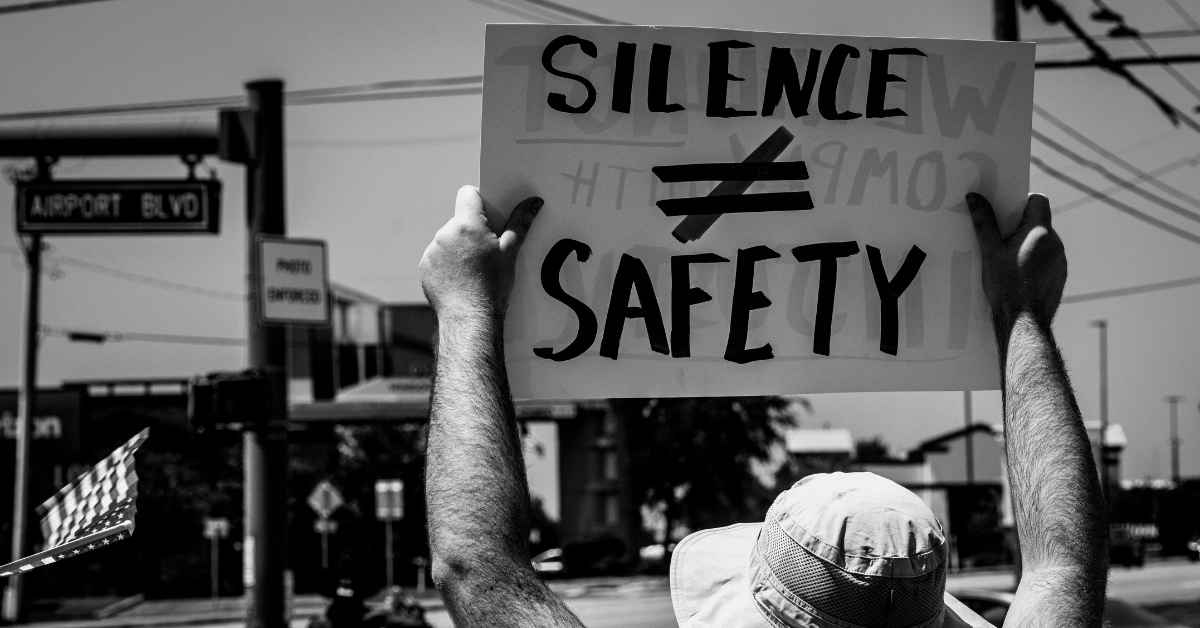2025 has been a perilous year for free expression.
Our nation is built on the ideal of liberty – that our national character and constitution promise us the freedom to speak, the freedom to create, and the freedom to choose what we see, listen to, and read. Those are the values that have motivated our work at the National Coalition Against Censorship for over 50 years.
On the cusp of our nation’s 250th anniversary, however, these freedoms are at risk – and treated by the government as an inconvenience and an obstacle rather than a core feature of our democracy.
This moment in America is uniquely hostile to art, literature, and knowledge itself. And nearly every institution that helps uphold these values – libraries, schools, museums, media, law firms, non-profit organizations, and campuses – is at the center of the target. From the Kennedy Center to the Smithsonian to the National Archives, the government has silenced diverse expression, eliminated public support, and fired key leaders who have stood up for free expression and artistic excellence. This administration has targeted law firms and university campuses for harboring its political opponents, disappearing students who raise their voices in protest, and targeting faculty and programs whose viewpoints it disagrees with.
The result is unquestionably a field-wide constriction of arts, literature, dissent, and culture. And defenders of free expression must use every tool we have to ensure that our commitment to liberty outlasts this moment. Our democracy depends on it.
The National Coalition Against Censorship has been fighting the censors on every front with our public education, arts advocacy, youth programming, legal strategy, and direct investment in communities fighting censorship. And wherever possible, we do this work in coalition: this is a moment for collective action and courage.
We fight back against government censorship in the courts, filing legal briefs to oppose Trump’s targeting of law firms and student protesters. We convene leading voices in the arts world to oppose Trump’s Executive Orders and strategize best practices for resisting censorship. We have joined with coalition partners to decry the administration’s war on words. We support and gather right-to-read advocates fighting book bans in their communities. And we are ensuring that our free expression principles survive this moment and thrive in the future by investing in the next generation of free speech defenders.
Art and literature can survive and thrive in challenging times – they always have. And there are lessons we can learn from other places and other times when expression has been under fire.
First, private cultural institutions facing the choice to submit to government pressure or stay true to their missions and values must make the only real choice they have: to steel their spines and stand firm against pressure to self-censor or shrink their footprint to avoid a vindictive government. It isn’t only a matter of principle, but of practicality. Capitulating to bullies is simply never a one-time deal: weakness merely makes you a repeat target. And standing by one’s values has immense benefits. The public sees the institutions that cave and those who stand up. Columbia, which complied with the federal government’s unconstitutional demands of its campus, has seen its application numbers drop in favor of schools with a firmer commitment to their academic freedom. Law firms that made deals with President Trump to support his agenda have lost high-profile clients who have flocked to firms that have demonstrated their fortitude–after all, everyone wants a lawyer who can withstand pressure. In short, cultural institutions that stick by their values stand out as cultural leaders. And they will be the first to weather this moment and be the leaders of our next great era of cultural expression.
Second, censorious times demand that we be vocal advocates for our rights—visible resistance to censorship matters. Campuses have signed mutual support pacts; law firms have (unusually!) gathered together to oppose the president’s attacks on others in court filings. But we cannot rely on large institutions–or the courts–to save our democracy. We each have a vital role to play in fighting the censors. Resistance comes in all forms and starts in each of our communities. Here at NCAC, we convene and resource community defenders of book bans who are fighting back against educational censorship in their school districts. We work to organize the arts and cultural field to join together in a mutual statement of values and best practices to resist censorship. And critically, we help shape the next generation of leaders who will inherit our cultural landscape and become the fierce advocates that will lead the charge for our liberty.
This work is essential – we won’t let censorship take its grip on us without a fight. But collective action offers not only resistance, but hope. Moral courage is contagious, and it creates new communities in dissent. And when we stand up together in the face of unjust government action, we illustrate that beautiful promise envisioned in our constitution – a messy and unmuzzled democracy of free people fighting for our rights. Join us in speaking up, refusing to cede our liberties, and refusing to be complicit in the diminishment of our culture and liberty. In coalition, we find purpose, principle, joy–and the true meaning of American democracy.


